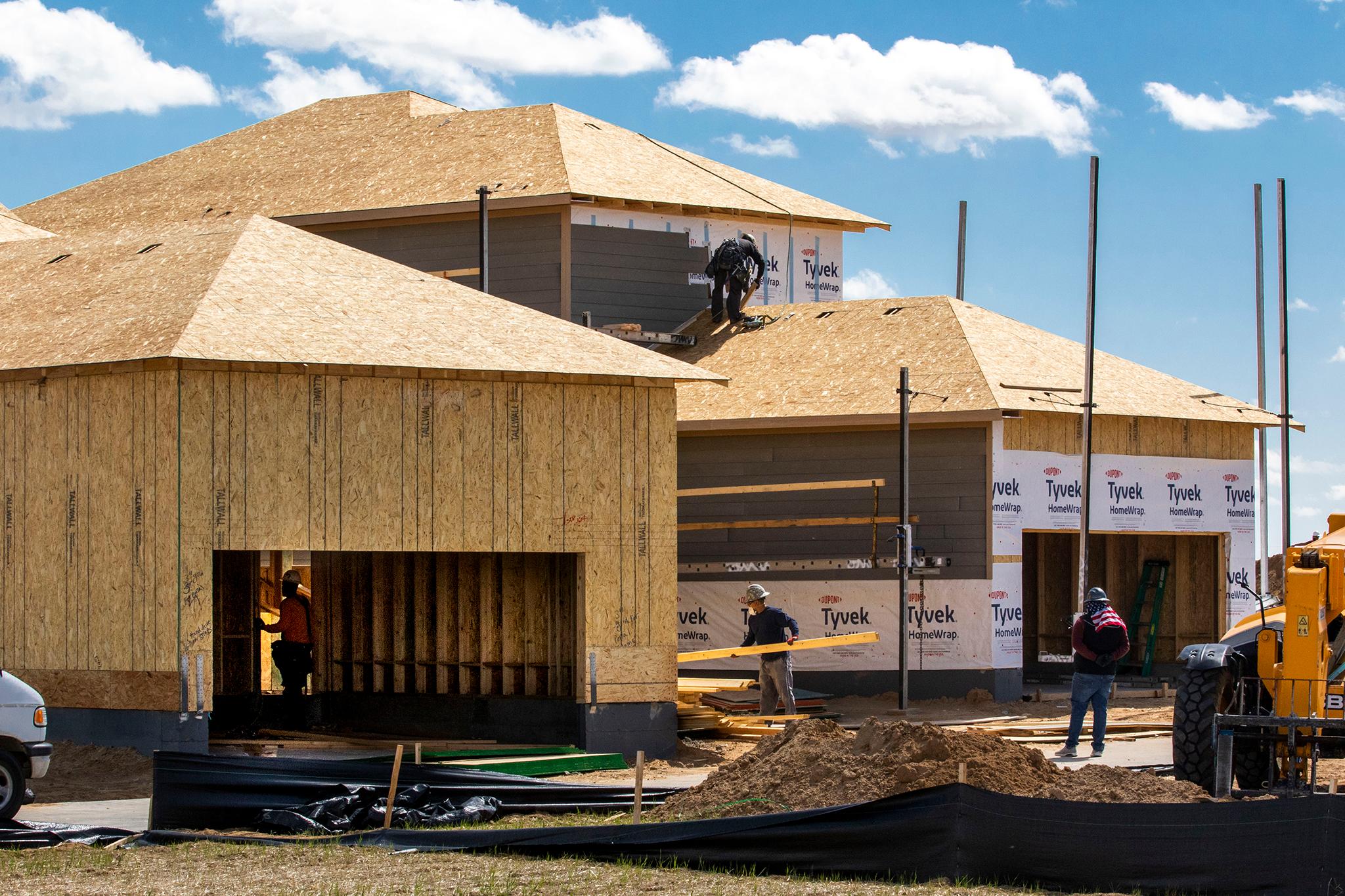New residential building activity in metro Denver dipped during the coronavirus slowdown, and while May saw some recovery, developers are concerned about the possibility of a long-term downturn.
The number of building permits authorized for new residential units dropped by 12.2 percent in Denver in April compared to April of 2019, according to Construction Coverage, a national industry think tank. Construction Coverage looked at Census data to determine that 1,438 units were permitted in metro Denver this April, compared to 1,638 last year.
John Covert, director of the housing market research firm Metrostudy, saw similar trends. Before COVID-19, Covert said, metro Denver builders averaged 1.5 sales per week per subdivision. The number dropped to 0.5 sales by the end of April.
Metrostudy conducts its own on-the-ground surveys of activity at construction sites and collects data from builders. Covert said that in addition to fewer sales, builders were seeing fewer prospective buyers visiting model homes during the stay-at-home orders imposed to try to slow the spread of the coronavirus, which may have led them to be cautious about applying for permits to build more. Visits and sales recovered in May, he said.
The question now, Covert said, was whether May's recovery reflected pent-up demand from April, or whether it can be sustained. The record joblessness caused by the impact of COVID-19 on the economy could mean many consumers won't be buying.
"We're in a recession, clearly. And we're not going to just snap back," Covert said. "There's a lot of uncertainty out there."
Builders recall the Great Recession of 2007-2009 when some of their peers went out of business. But unlike then, builders now are not sitting on a lot of inventory, Covert said. He also said the industry has started to build less expensive homes -- attached, or on smaller lots.
Jill Schafer, who chairs the market trends committee of the Denver Metro Association of Realtors and is a Kentwood realtor, said builders needed to continue to create supply, because low inventory often translates to higher prices.
"I don't think this is like the last recession. We're going to bounce back," she said, adding that buyers are looking for houses and eager to take advantage of low interest rates.
If builders are "cutting back, that's going to tighten things even more in a market that many people think is already unaffordable," Schafer said.













